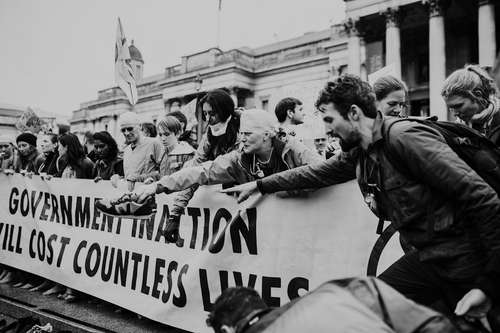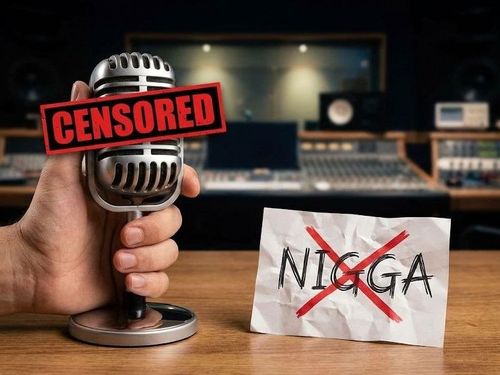The political landscape in America has always been a subject of intense debate and passionate discussion. Lately, many observers and political analysts have raised an eyebrow at the increasing centralization of power, hinting at a disturbing shift towards authoritarian governance. Have you ever wondered if we are witnessing the rise of authoritarianism in America? As we delve into this complex phenomenon, you might find yourself questioning the fine balance between security and freedom, and what that balance means for our future.
The discussion is not new, yet its implications are profound. The tension between preserving democracy and veering towards concentrated power has been a central theme in American politics over the years. More than ever, issues related to government control, political power, and the erosion of freedom and rights are stirring debates from every corner of the nation.
Theoretical Foundations and Modern Context
The modern political climate in the United States offers a dynamic backdrop for exploring the rise of authoritarianism. In this section, we examine the theoretical underpinnings of authoritarian governance and how these ideas are manifesting today.
Historically, authoritarian regimes tend to emerge when key democratic norms and institutions begin to erode. Today, many voices in political science and political analysis draw parallels between past patterns of concentrated power and recent shifts in US politics. Some scholars believe that increased government control over certain aspects of our lives, the constant echo chamber in political discourse, and outright challenges to the separation of powers are all early signs of a political shift.
Political trends indicate that as power becomes less distributed, the signals often resemble earlier authoritarian regimes. Although debates continue about the intent and nature of these changes, one thing is clear: tendencies towards authoritarianism in America are not something that emerge overnight. They result from a blend of evolving political ideologies, crises, and public responses to rapid social change.
It’s essential to note that this isn’t about a single leader or moment in time. Instead, it is the culmination of various factors that have slowly restructured the American political landscape. Even when discussions are wrapped in metaphor—describing power as a slowly tightening noose—the reality remains that democratic institutions must be vigilantly maintained.
Historical Warnings: Looking Back to Move Forward
History often serves as a powerful mirror reflecting on our current challenges in American democracy. In this section, we explore historical parallels that warn us about the potential dangers of excessive government control.
When we examine past instances in world history, the trajectory of authoritarian regimes becomes clearer. There have been times in the 20th century and earlier when authoritarian leaders consolidated power, often under the guise of restoring order amid chaos. Such historical parallels resonate with today’s increasingly polarized political environment and are a stark reminder of how fragile democracy can be.
Many historians offer stark reminders of the past to shed light on the present, warning that the erosion of free expression, the marginalization of dissenting voices, and the centralization of political power can set off a dangerous chain reaction. In American politics, the current rise of authoritarian governance appears to mimic these historic trends, suggesting that the seeds of a political shift have long been sown.
It isn’t a coincidence that political discourse nowadays frequently references issues of government control and the diminishing checks and balances that once ensured freedom and rights. By understanding these historical warnings, we can better appreciate the importance of safeguarding the institutions and values that underpin American democracy.
Impact on American Democracy
This section discusses the implications of these trends for democracy in America. What does it mean for our political future when elements of authoritarianism start to dominate?
At its core, democracy relies on the dispersion of power and the continuous engagement of its citizens. An emerging shift towards centralized governmental control poses significant risks, particularly if it starts to undermine the balance necessary for a healthy political system. Such a scenario can be observed in how certain segments of society feel increasingly alienated from political decision-making processes.
With controversial policies and growing executive actions, the erosion of democratic norms becomes a concern. Different voices in academic and political circles argue that a decline in institutions meant for checks and balances might lead to a situation where power becomes dangerously concentrated in a few hands. This prospect raises concerns not only about political power but also about fundamental aspects of freedom and rights.
For many citizens, the discussion is not just about political trends, but about the lived experience of democracy. The potential loss of democratic control affects everything from basic civil liberties to the ability to influence policy through local organizing. In other words, the conversation about US authoritarianism is deeply personal—it’s about ensuring that every American continues to enjoy the rights that have long defined our nation.
Future Prospects and Citizen Engagement
In the final stretch of our discussion, we focus on what the future may hold and why active citizen engagement is essential. The coming years could shape the trajectory of American democracy for decades.
Many experts emphasize that the fight against authoritarianism isn’t limited to political leaders—it’s a matter of active participation from everyday citizens. Engaging in local politics, staying informed about government decisions, and demanding transparency are critical steps in countering a slide into authoritarianism in America. When citizens feel empowered, the chances for a healthy democratic discourse increase, and the centralization of power can be effectively challenged.
This isn’t a time for apathy. Instead, it’s a moment of both challenge and opportunity—an opportunity to reinvigorate the long-standing tradition of political participation that has defined American democracy. As you may have noticed, the personal responsibility in addressing political trends is an essential part of our continued progress as a nation.
Observing events in US politics, one might recall the potent words of civic-minded leaders who stressed accountability and transparency. Although the specifics may vary, their core message remains relevant: democracy thrives when its citizens remain vigilant and ready to engage. It is through such involvement that we can resist the pull of authoritarian regimes and preserve the freedoms that are the cornerstone of our society.
As we wrap up our discussion, it becomes clear that the future of American democracy will be shaped by the interplay between political power and citizen engagement. Will we see the rise of authoritarianism become a permanent feature, or will a renewed commitment to democratic values lead to a revitalized political system? This question, along with many others, invites us to look within and assess how we can contribute to a government that respects freedom and rights while remaining accountable to the people.
In essence, the issues raised today about authoritarian governance and government control are far from abstract debates—they are calls to action for every American. The political discourse surrounding these topics is dynamic and reflects the constant tension between order and liberty. Now more than ever, our active participation and informed discussions are vital for ensuring that democracy in America does not just survive but thrives.




